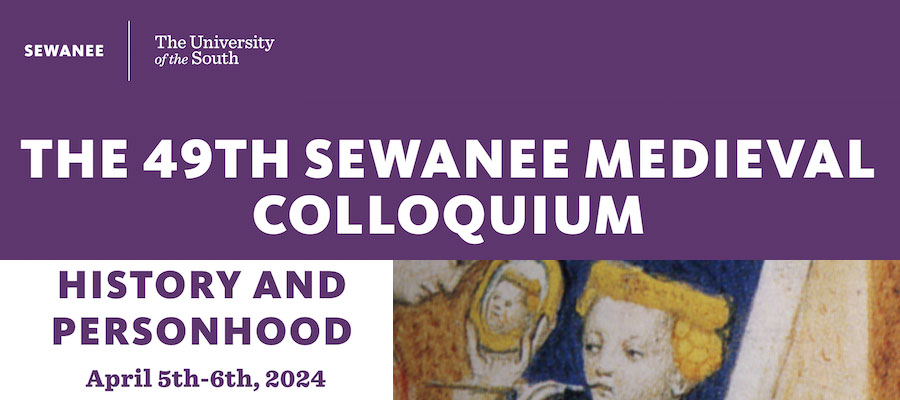The 49th Sewanee Medieval Colloquium, The University of the South, April 5–6, 2024
The Sewanee Medieval Colloquium is pleased to announce the theme, History and Personhood, for the 49th Colloquium, which will take place in-person, April 5th-6th, 2024, on the campus of the University of the South in Sewanee, Tennessee. The conference invites participants from across the field of medieval studies to consider how to construct the history of people and persons, as well as how people, in turn, construct history, We invite conversations around the ideas of persona, personhood, identity, voting, subjectivity, historicization, reportage, legal history, and more.
The understanding of identity, in the medieval as in the modern, rests within discourses of science, medicine, religion, visual representation, literary imagination, legal definition, and historical record, among many others. Personhood is both imagined and policed by historical actors in a given time period -- but also by those looking back to uncover narratives and images of the past. This conference asks participants to consider how we construct the history of people and persons, as well as how people, in turn, construct history. We invite conversations around the ideas of persona, personhood in historical chronicle, visualizations of identity-categories, the limits of the anthropocene, voicing as subjectivity, and more.
Papers might be interested in the construction of royal identity, of personhood marked by faith, in legislated systems of inclusion or exclusion, or how sensation determines what it means to be human. Panels might address the role of ‘the historical turn’ in modern scholarship, the nature of literary biography, or how we address personhood as a contested category in our classrooms. The conference welcomes papers focusing on any area or region of the globe and encourages participation from faculty working on material from Asia, Africa, or the Americas. Finally, we hope for interdisciplinary work addressing how categories or discourses around personhood disrupt our familiar, modern departmental divisions.
Proposals for papers can touch upon any aspect of the general theme. Scholars can apply to the general call, or to specific sub-themes. We accept proposals from anyone with a Ph.D. or who is in the process of gaining a doctorate.
We also invite participants to submit whole panels of papers, that is, a pre-organized panel.
